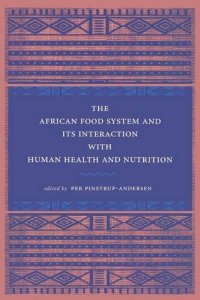
Ebook: The African Food System and Its Interactions with Human Health and Nutrition
Author: Per Pinstrup-Andersen
- Tags: Industries, Agriculture, Automotive, Computers & Technology, Energy & Mining, Fashion & Textile, Financial Services, Hospitality Travel & Tourism, Industrial Relations, Manufacturing, Media & Communications, Museums, Performing Arts, Pharmaceutical & Biotechnology, Restaurant & Food, Retailing, Service, Sports & Entertainment, Transportation, Business & Money, Nutrition, Antioxidants & Phytochemicals, Caffeine, Cancer Prevention, Fiber, Food Additives, Food Allergies, Genetically Engineered Food, Macrobiotics, Vitamins & S
- Series: United Nations University
- Year: 2010
- Publisher: Cornell University Press
- Edition: 1
- Language: English
- pdf
Hunger, malnutrition, poor health, and deficient food systems are widespread in Sub-Saharan Africa. While much is known about African food systems and about African health and nutrition, our understanding of the interaction between food systems and health and nutrition is deficient. Moreover, the potential health gains from changes in the food system are frequently overlooked in policy design and implementation.
The authors of The African Food System and its Interactions with Human Health and Nutrition examine how public policy and research aimed at the food system and its interaction with human health and nutrition can improve the well-being of Africans and help achieve the United Nations Millennium Development Goals (MDGs). Several of the MDGs focus on health-related challenges: hunger alleviation; maternal, infant, and child mortality; the control of HIV/AIDS, tuberculosis, and malaria; and the provision of safe water and improved sanitation. These challenges are intensified by problems of low agricultural and food system productivity, gender inequity, lack of basic infrastructure, and environmental degradation, all of which have direct and indirect detrimental effects on health, nutrition, and the food system.
Reflecting the complexity and multidisciplinary nature of these problems and their solutions, this book features contributions by world-renowned experts in economics, agriculture, health, nutrition, food science, and demography.
Contributors: Harold Alderman, World Bank; Christopher B. Barrett, Cornell University; Kathryn J. Boor, Cornell University; Laura K. Cramer, Cornell University; Stuart Gillespie, International Food Policy Research Institute; Anna Herforth, Cornell University; Dorothy Nakimbugwe, Makerere University; Rebecca Nelson, Cornell University, Onesmo K. ole-MoiYoi, Kenyatta University and Kenya Agricultural Research Institute; Per Pinstrup-Andersen, Cornell University and the University of Copenhagen; Marie T. Ruel, International Food Policy Research Institute; David E. Sahn, Cornell University; Barbara Boyle Torrey, Population Reference Bureau; E. Fuller Torrey, Stanley Medical Research Institute; Joachim von Braun, University of Bonn; Speciosa Wandira, Concave International; Derrill D. Watson, Cornell University


















